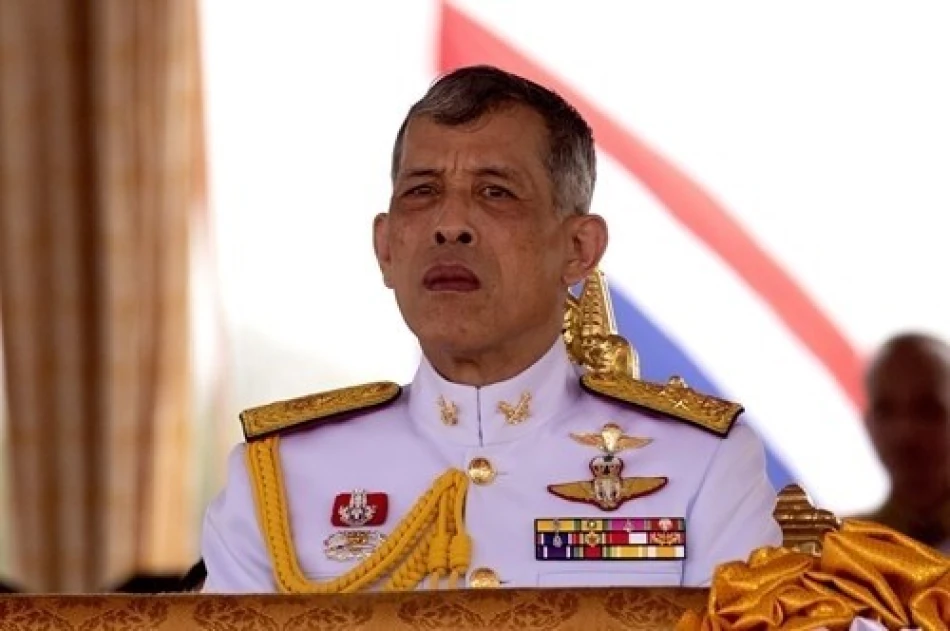
Thailand's Newly Appointed Prime Minister Anutthin Charnvirakul Assumes Office
Thailand's New Technocrat-Heavy Cabinet Signals Policy Shift After Political Upheaval
Thailand's King Maha Vajiralongkorn approved a new cabinet under Prime Minister Anutin Charnvirakul on Friday, marking another chapter in the kingdom's ongoing political instability. The government, notably packed with non-political appointees, will assume office next week following constitutional oath ceremonies, potentially signaling a shift toward technocratic governance after months of judicial intervention in Thai politics.
From Court Order to Cabinet Reshuffle
The cabinet approval follows Parliament's selection of Anutin, leader of the Bhumjaithai Party, as prime minister last month. He replaced Paetongtarn Shinawatra of the Pheu Thai Party, who was removed by court order in what has become a familiar pattern of judicial interference in Thai politics.
This transition represents more than a simple changing of the guard. The inclusion of numerous non-political figures in key ministerial positions suggests an attempt to depoliticize certain aspects of governance, potentially appealing to Thailand's powerful military establishment and conservative royalist factions who have historically viewed elected politicians with suspicion.
The Technocrat Gamble
Thailand's decision to lean heavily on technocratic appointments reflects a broader regional trend, but with distinctly Thai characteristics. Unlike Singapore's institutionalized technocracy or the UAE's business-focused governance model, Thailand's approach appears reactive—a response to persistent political deadlock rather than a strategic long-term vision.
Economic Implications
For investors and markets, this cabinet composition could prove double-edged. Technocrats often bring policy expertise and reduced political interference in economic decision-making, potentially benefiting sectors requiring long-term planning like infrastructure and energy. However, they typically lack the political capital needed to push through controversial but necessary reforms.
Thailand's economy has struggled with sluggish growth and competitiveness issues compared to regional peers. A technocrat-heavy government might prioritize evidence-based policies over populist measures, though implementation remains challenging without strong parliamentary backing.
Political Stability Remains Elusive
This marks yet another government transition in Thailand's turbulent political landscape, where court interventions and military influence continue to shape electoral outcomes. The pattern—elected governments facing judicial challenges leading to reshuffles or removals—has become Thailand's political norm rather than exception since the 2006 coup that ousted Thaksin Shinawatra.
Anutin's Bhumjaithai Party, traditionally a coalition partner rather than a dominant force, now finds itself leading government. This shift may reflect the establishment's preference for more malleable political leadership over the populist appeal of parties like Pheu Thai, which maintains strong rural support bases.
Regional Context and Implications
Thailand's political instability contrasts sharply with the governance models emerging elsewhere in Southeast Asia. While Vietnam pursues technocratic socialism and Singapore maintains its scholar-bureaucrat system, Thailand appears caught between democratic aspirations and traditional power structures resistant to electoral outcomes.
For ASEAN and regional economic integration, Thailand's continued political uncertainty poses challenges. Major infrastructure projects, trade agreements, and foreign investment decisions often stall during government transitions, potentially hampering Thailand's role as a regional economic hub.
The international business community will be watching whether this new configuration can provide the policy continuity and reform momentum Thailand needs to compete effectively with more stable neighbors like Malaysia and Indonesia for foreign direct investment.
Most Viewed News

 Layla Al Mansoori
Layla Al Mansoori






